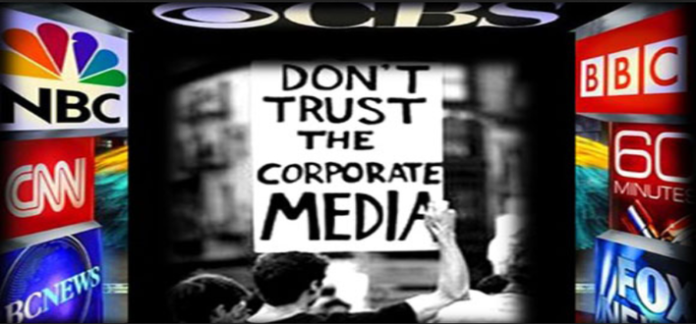JMAD’s 2020 NZ Media Ownership report is doubly significant. First, it completes a decade of research into a changing mediascape. Each annual report, available online, is a valuable resource for journalists, academics, activists and all others committed to democratic public sphere principles. In retrospect, major ownership trends can be traced—transnationalisation, concentration, conglomeration, financialisation and the emergence of local independents. Second, the 2020 report documents the national impact of COVID-19 on different media sectors—television and radio broadcasting, magazines, newspapers, Māori language and Māori interest media and social media platforms. To complement these accounts, the report also explains how COVID-19 affected global media—print news, television broadcasting, media-entertainment corporations, ICT, streaming and social media corporations. I won’t rehearse the latter findings here except to identify a bleak-joyful continuum. At the bleak end, newspapers and news businesses reliant on offline sales and advertising either disappeared or barely survived. At the joyful end, Facebook, Alphabet/Google, Zoom and Netflix did well. The happiest performer of all was Amazon. For the three months to the end of June 2020, Amazon earned US$5.2 billion in net income, double that for the same period in 2019. CEO Jeff Bezos increased the value of his personal holdings from US$113 billion to US$192 billion from mid-March to mid-October 2020. The world`s richest man is a pandemic profiteer.
The national media impact of COVID-19 outlined in this year’s report should be read in conjunction with my earlier blog (link -June 5, Crisis, Disintegration and Hope: Where to for New Zealand’s news media?). Altogether, there are some grounds for cautious optimism. Outside of private-equity controlled companies (Bauer Media, MediaWorks) and shareholder-owned media/telecom companies, independents can be strengthened. The latter category includes Allied Press, Business Desk, NBR, Newsroom, Scoop, The Spinoff and Stuff (purchased this year by Sinead Boucher). Their sustenance of news reporting, current affairs commentary and investigative journalism would be greatly assisted by returns from a tax or levy on social media corporations. The Australian government has responded to the fact that Alphabet/Goole and Facebook generate significant revenue from recycling already created news content. Similar moves in the UK and Europe have passed our government by.
Meanwhile, government proposals for an RNZ/TVNZ merger seem to be in hibernation. Properly administered, this could re-invigorate public media. Additionally, Crown-owned media organisations—TVNZ, RNZ and Māori Television—should be conceived, strategically, as an amalgam of stations, channels and digital platforms with overlapping non-commercial objectives. This is a pivotal moment. Out of the pandemic, the government has a clear mandate for media reconstruction and public media reform. If this does not eventuate then the 2020 JMAD Media Ownership report will read, historically, as the start of an era—an era of missed opportunity.



“This is a pivotal moment. Out of the pandemic, the government has a clear mandate for media reconstruction and public media reform.”
/agreed
Don’t hold your breath though Wayne. It’d require certain Ministers to be able to walk and chew gum at the same time,
Just as it would in order to make progress in other areas to do with the public good. (child poverty, housing, climate change, a meaningful Bill of Rights, Treaty, transparency et al, health).
I can’t see why the veneer of government would do anything substantive to improve our Dimocraptcy as it serves their interests. A tough rat to swallow. RNZ is sliding to become a TVNZ patsy. RIP RNZ. It’s been whittled away to gangerous skeleton.
There is a huge difference in meaning between “loose” & LOSE. “Loose” rhymes with goose (as in silly goose). Lose is future tense of Lost. How many posters do a word check before they post? Errors of grammar/spelling diminish meaning. The use of a dictionary is never out of fashion.
I have to agree. Strangely it’s normally the right wing red necks that always use “loose”, or “looser”, to describe those on the left.
I expect countryboy just laid on the “o” for a second too long.
Comments are closed.